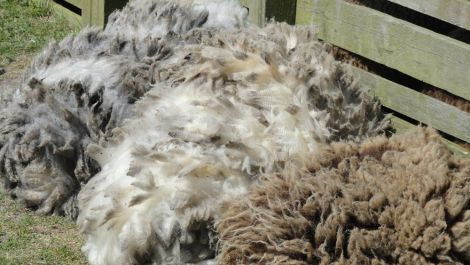News / Defra pledge to sort Native Shetland blunder
THE UK government is stepping in to sort out a bureaucratic blunder that bans 99 per cent of Shetland sheep farmers and crofters from using the term ‘Native Shetland Wool’.
Two weeks ago the European Commission granted exclusive use of the term to the crofting co-operative ShetlandOrganics, which has just six members.
The decision set off alarm bells among some of their 900 or so fellow crofters, who contacted local MP Alistair Carmichael with their fears that they will be barred from claiming their produce hails from the isles.
Mr Carmichael has now invited a senior government civil servant to Shetland to speak to the local industry and resolve the issue by amending the protected designation of origin (PDO) accreditation.
Six years ago ShetlandOrganics applied to Europe for a PDO using the term ‘Organic Native Shetland Wool’, at a time when the price of wool had collapsed and they sought to restore some of its value.
However lawyers within the EC decided to drop the word ‘organic’ from the term, and unbeknownst to ShetlandOrganics, failed to consult within Shetland or anywhere else in the UK about their move.
When the PDO was announced on 11 November, it came as a complete surprise to all the other sheep producers, wool traders and craftspeople in Shetland.
One said: “If this regulation means that we can’t use the term ‘Native Shetland Wool’ there is nobody from Europe that’s told me about it or asked if it is going to affect us, so we really don’t know what this means.”
Ronnie Eunson, of ShetlandOrganics, explained: “Shetland wool used to have fantastic value. Since then it’s been degraded and every high street sells ‘Shetland wool’ that may or may not come from Shetland.
“We applied to use the term ‘Organic Native Shetland Wool’ to identify it as being organic and coming from Shetland, and we don’t understand why the change had to be made.”
Become a member of Shetland News
Jim Nicolson, secretary of the Shetland Flock Book Society, said he fully supported ShetlandOrganics’ effort to obtain the PDO, but agreed it should have contained the word ‘Organic’.
Alistair Carmichael has invited Simon Johnson, of the Department for Environment, Food and Rural Affairs (Defra), to Shetland to find a way in which the PDO can be amended.
Mr Carmichael said a PDO could provide a real marketing advantage for wool from native Shetland sheep, and it was “unfortunate” that instead it had excluded the vast bulk of local wool producers.
“It’s nobody’s fault, but is a consequence of the somewhat bizarre approach to consultation which is taken by the European Commission,” he said.
“I would like to get the Defra officials to Shetland as soon as possible to work out a way ahead which is sensible.
“I am very impressed with the measured and sensible approach that all parties have taken in dealing with this difficult issue and I hope that this approach will allow us to find a way to protect the best interests of Shetland crofters and farmers.”
A Defra spokeswoman said: “We want all native Shetland wool producers to be able to use the protected name, and we’re working with the local MP, Scottish government and the industry to sort this problem out.”
Native Shetland Wool is the first non-food product in Europe to receive a PDO, the highest level of protection currently enjoyed by the likes of Shetland Lamb, Scottish Farmed Salmon, Scotch Beef, Cornish Clotted Cream and Blue Stilton Cheese.
Become a member of Shetland News
Shetland News is asking its many readers to consider paying for membership to get additional features and services: -
- Remove non-local ads;
- Bookmark posts to read later;
- Exclusive curated weekly newsletter;
- Hide membership messages;
- Comments open for discussion.
If you appreciate what we do and feel strongly about impartial local journalism, then please become a member of Shetland News by either making a single payment, or setting up a monthly, quarterly or yearly subscription.




























































